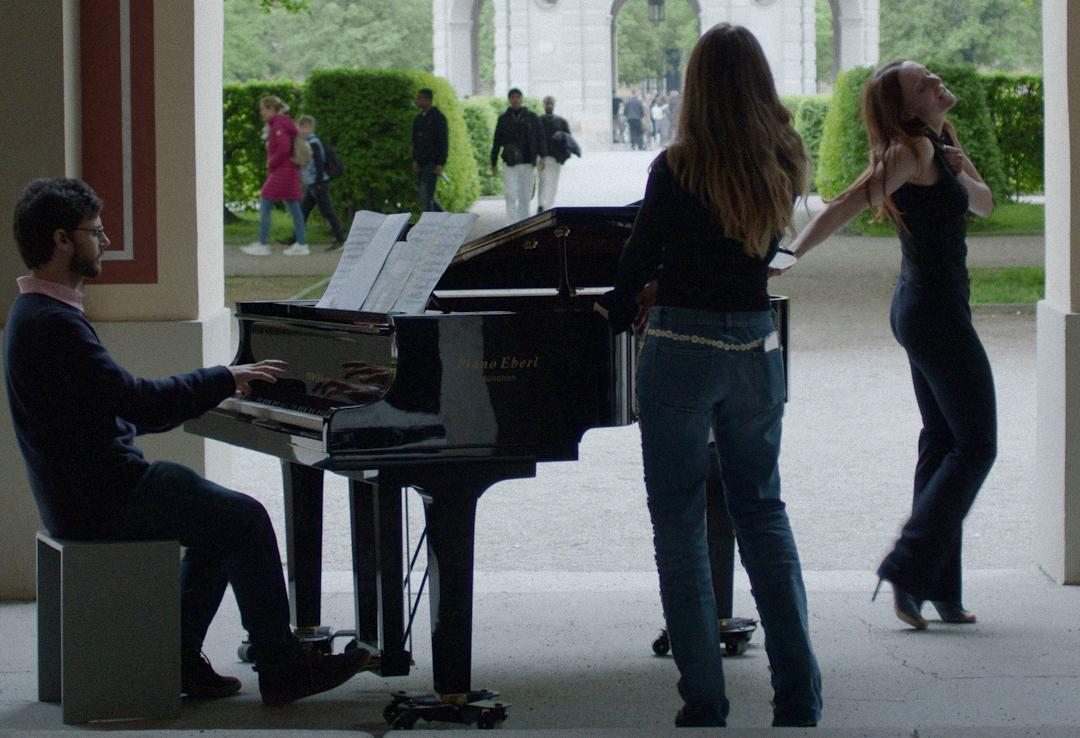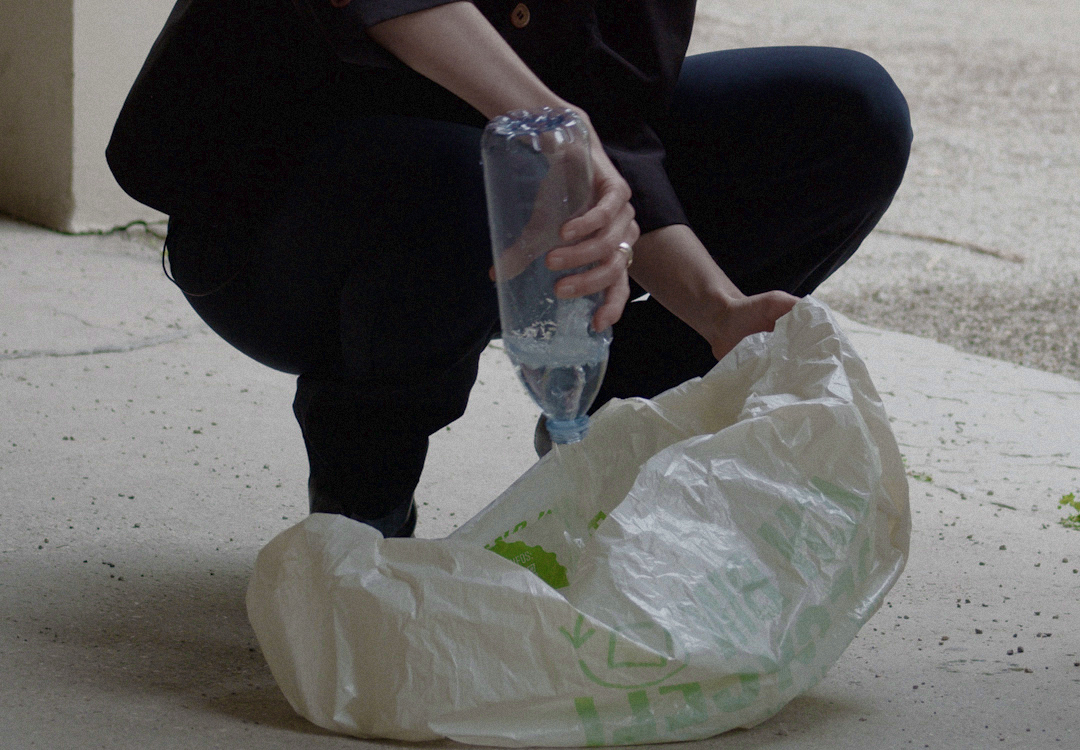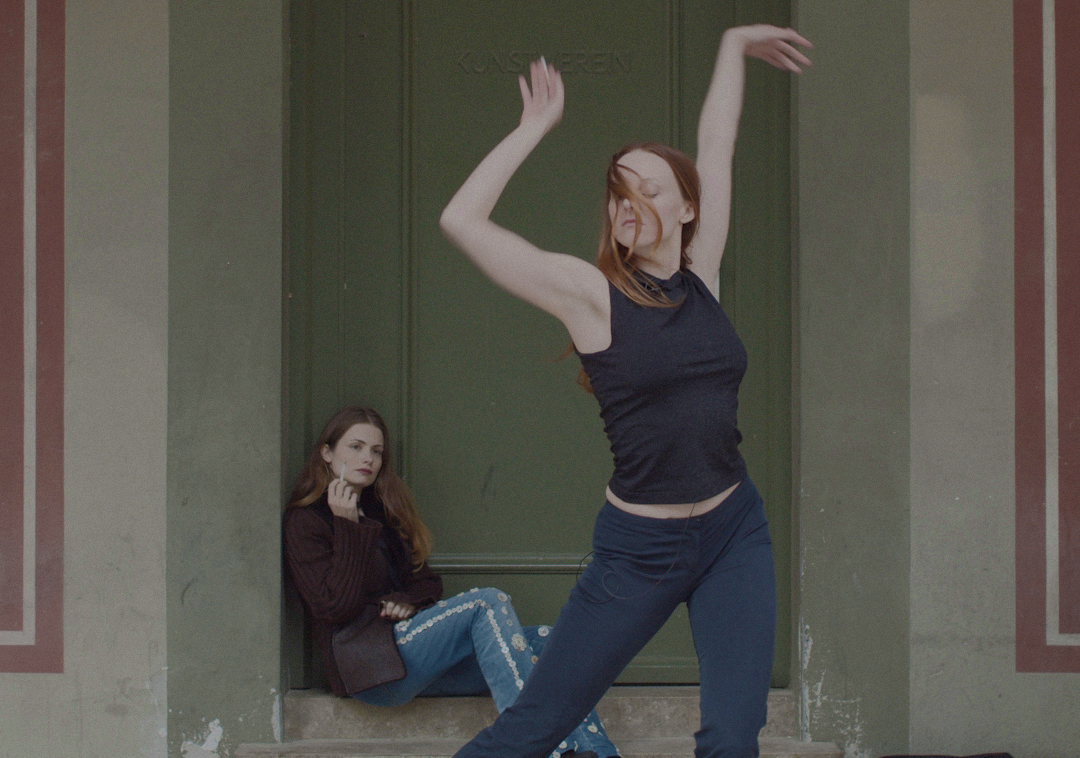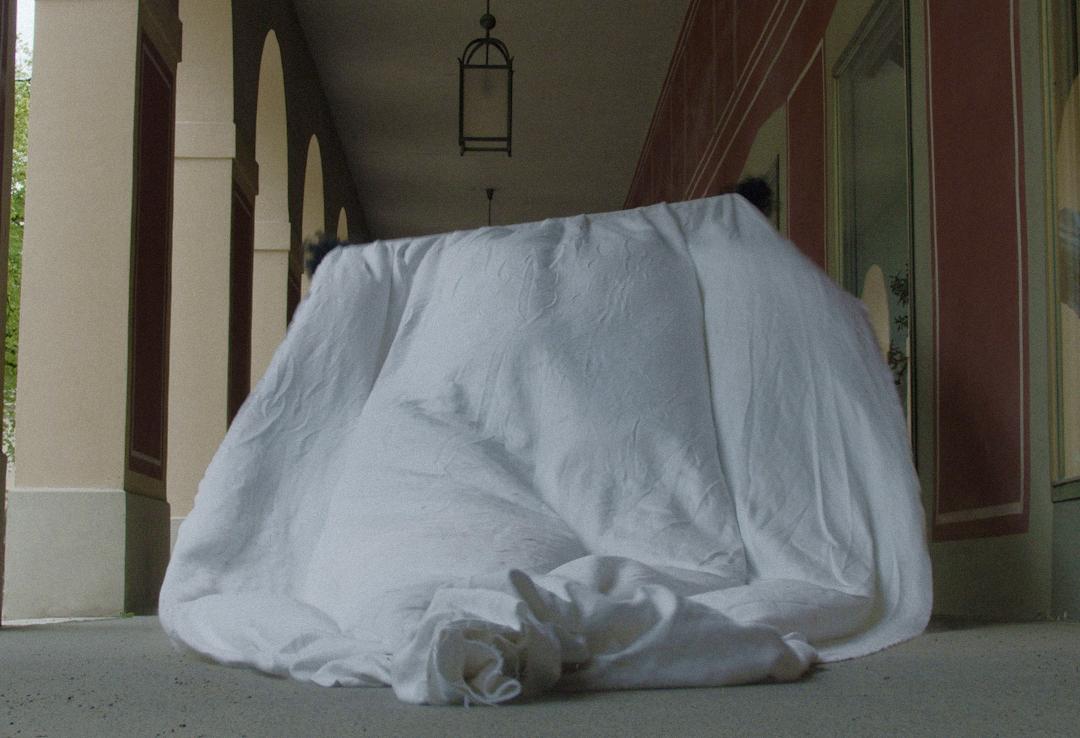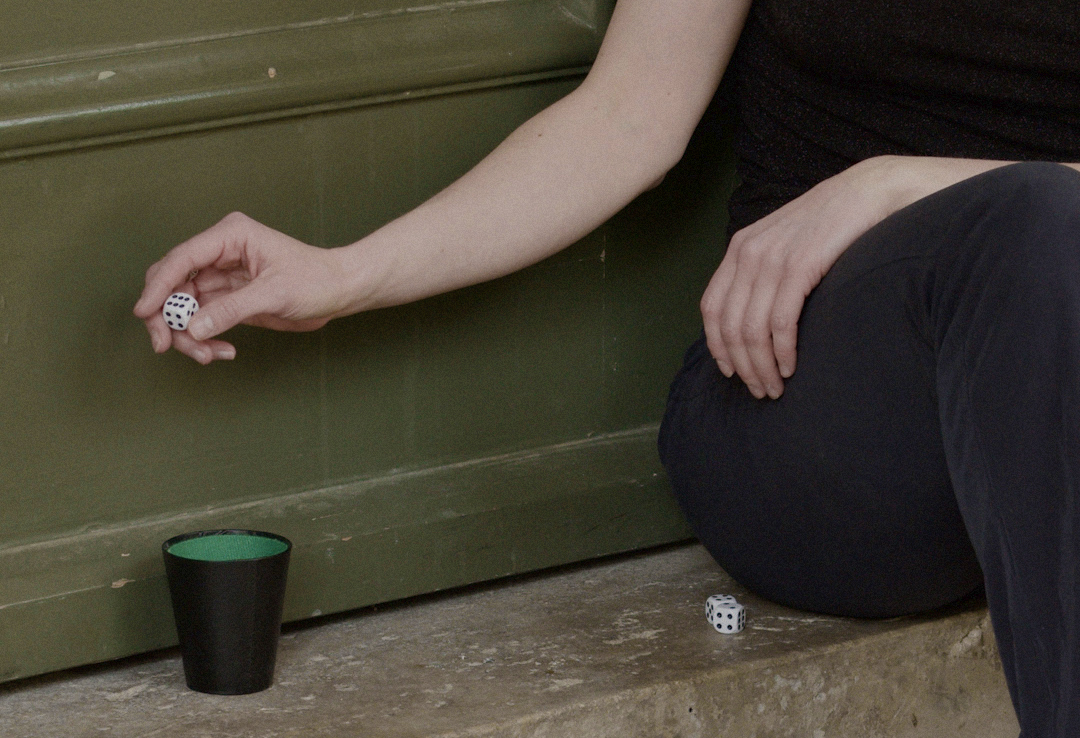*
*
Rude no.1
*
Play
Written / Directed / Performed by Shade Théret and Magdalena Mitterhofer
PREMIERE
20. May 2023
PARK Series, Kunstverein München
Pianist: Ben Cruchley
Documentation: CNP Studio
Curatorial: Gina Merz
*
*
Closed on one side, open on the other, the Hofgarten arcades become a shelter, but not quite. While existing in open view, the moving body can always be looked at from the center of the garden.
The protection and intimacy suggested by the architecture conflicts with its actual publicity: since the Hofgarten was initially conceived as a private and representative site, todays attempt to use it collectively does not go without friction.
The original purpose of entertaining the 1% still seems to be the agenda of the park’s management.
Who constitutes the public within such a predefined space and which forms of use serve whom?
The new piece, rude no.1 by Shade Théret and Magdalena Mitterhofer tests the passageway of the arcades as a threshold for various figures that have inhabited the space throughout different moments in time.
The performance aims to invent an archive of past narratives through the enacting of historical archetypes, such as the garden hermit and the dancer Lola Montez.
In that vein, rudeness and lamenting are proposed as a liberating and transgressive act by which means the park’s function as a socially resistant site is overstrained.
In the 18th century, ornamental hermits were held in purpose-build grottos, obligated to live alone and only present themselves in daylight, whenever their employers wished for amusement.
The hermit was used as yet another object to embellish the garden. Not only in the case of this figure the differentiation of decoration and vandalism seems to be a subjective one: for some,
Lola Montez was a transfixed muse, for others the embodiment of obscenity.The dancer was denied membership at Kunstverein München in 1846.
Théret and Mitterhofer study the rejected movements of Lola Montez through their own.
rude no.1 thus examines performance as ornament, as entertainment, and as objectification.
(Gina Merz)
*
*
